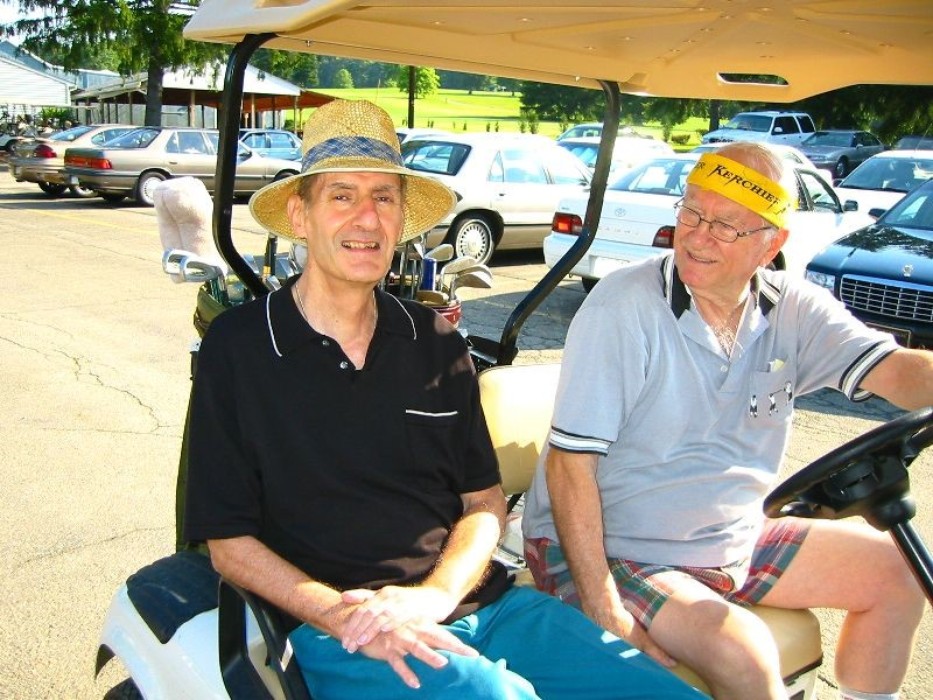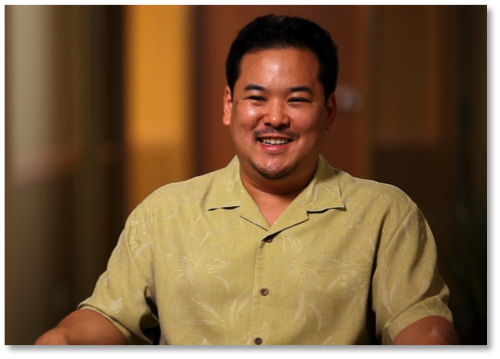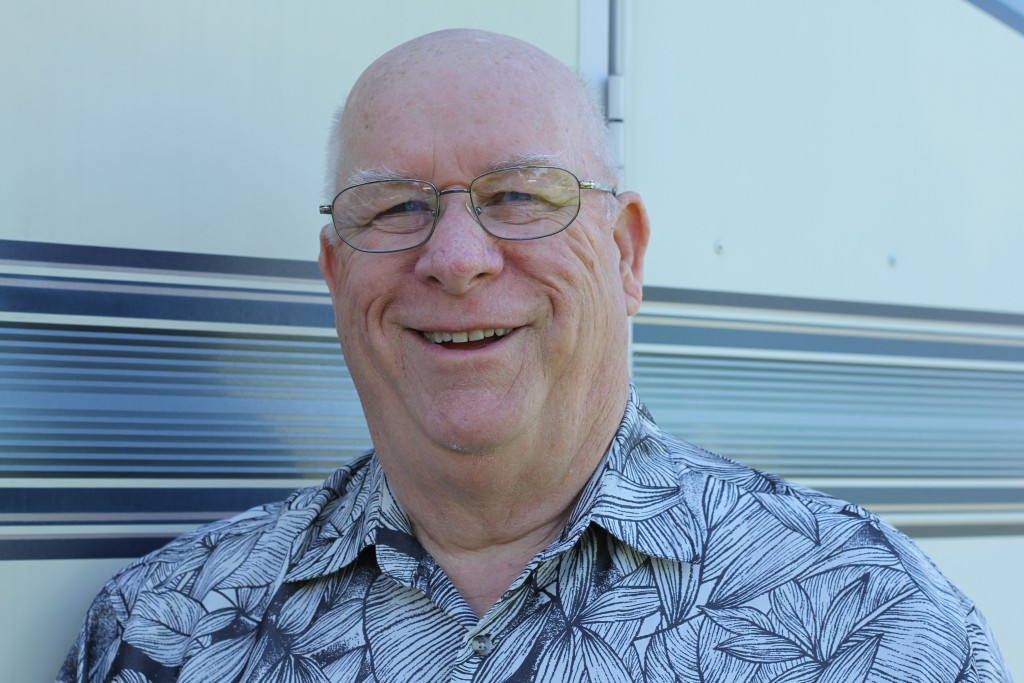
The Ornish Program Empowered Me with the Three R’s: Roadmap, Reinforcement, and Reward!

by paul-focus97
Name: Jim
Age: 77
Location: Hamot (Legacy Site)
Health Challenge: Congestive heart failure in 1998. Suggested heart transplant.
Greatest Motivation: I went out with some guys from my cohort and played golf again. First we played 9 holes, eventually we played 18—and I’ve played at least a hundred rounds since. It’s been 16 years since I had two doctors tell me that I needed a heart transplant, and I’ve been okay. I got off the oxygen tubes. I’ve done things that I never could have done without the program.
In 1998, I had congestive heart failure and was in the hospital for 25 days. They told me that I had a virus that attacked my heart—idiopathic dilated cardio myopathy, and that my ejection fraction was only about 25 percent. I also had to be on 2 liters of oxygen every night when I got home, which was extremely uncomfortable. At the time, I didn’t have one doctor tell me that I needed a heart transplant; I had two of them tell me. And that really scared me. When I was recovering, quite frankly, I thought I was a “cooked goose” as they say. For several months there in 1998, I was more or less just lying on the couch. I had a visiting nurse. I was really concerned that I wouldn’t be able to go out and do things—do my normal activities.
“It’s been 16 years since I had two doctors tell me that I needed a heart transplant, and I’ve been okay.”
Luckily, before I moved forward with a possible heart transplant, a friend sent me a note about the Ornish Lifestyle Medicine Program (Intensive Cardiac Rehabilitation) in Pittsburgh. I was immediately intrigued, so I went and listened to a talk about it. At that talk there was a fellow next to me who also had congestive heart failure, and who said that he had seen definite improvement using the program. He was a much younger man, but he inspired me. A couple months later, I was in my cohort. If I didn’t have the program at that time, I would have been a lot more depressed about my diagnosis—I wouldn’t have had much hope for the future. The group support in particular helped me more than I could have imagined that it would. I live alone, so the group gave me a sense of community and of leadership that had been somewhat lacking. And it inspired me; I loved to hear the stories that other people would tell, it gave me confidence—it alerted me to new ideas about the heart. Plus, from a psychological standpoint, the group support allowed me to feel a little bit less stressed about my situation; listening to my group members gave me hope. You know, you have to be optimistic in a situation like that, and that’s what the group helped with. I could have taken the viewpoint of being a victim when I had the congestive heart failure, but instead I took the viewpoint of the group. And that optimism has helped me greatly ever since.
The way that I like to look at the program is with the Three Rs: roadmap, reinforcement, and reward. First, the program provides a roadmap; the four components of the program are the roadmap to lifestyle change. The second component is reinforcement; you go in, you listen to the leaders, you bond with the group, you do the exercise, you feel good—which reinforces the tenants of the program. The third R is the reward; the sense of accomplishment, the sense of feeling better about things, that feeling that “yeah, I can do this. And I’m benefitting from it.” I definitely did benefit from the program. In addition to the group support, my ejection fraction showed improvement, and my cardiologist said that I didn’t need a heart transplant. I also continue to exercise several times each week, and I can walk up the stairs without holding the bannister anymore, so that’s an accomplishment. Hey, I can’t run a 4 minute mile, but then again I couldn’t do that before the heart failure. I’m not feeble. Overall, the program makes me feel a lot better. You know, everyone wants to live forever, although I hear it’s pretty unlikely. But hey, as long as I can ambulate, urinate and cogitate, I’m doing O.K.!
Perhaps the biggest benefit was that after one year on the program, I didn’t need the oxygen at night any more. That was definitely an improvement because—as anyone who has had the experience can tell you—wearing those tubes in your nose every night is not the most enjoyable thing in the world. But my oxygen saturation level increased from 86 to 98 percent while on the program, so my cardiologist told me that I didn’t need the oxygen any more. I told him that was just fine with me. The oxygen company was pretty surprised when I asked them to come pick up the tanks!
The program has also had non-medical benefits for me. I like to golf, and after the heart failure I couldn’t golf for at least a year. But after 3 or 4 months on the Ornish Program, I went out with some guys from my cohort and played again. First we played 9 holes, eventually we played 18—and I’ve played at least a hundred rounds since. In the fall of 1998, I never expected, never thought that I would be capable of golfing again. I’m really glad I was wrong.
Another thing that I did was volunteer to teach a geography course at Carnegie Melon University. I taught the course about 8 times and enjoyed it tremendously. I’ve had a love for geography since I was a boy and I spent, I’ll bet, at least 500 hours putting that course together and modifying it as I went along. It’s been wonderful for me. Before I did it, I thought I knew something about geography, but when I did it I found that I actually knew very little, which was great. I probably would not have even tried teaching without the Ornish Program. I would have thought “I’m not up to that,” because it’s not the easiest thing to stand in front of a class for an hour and a half and talk. It was rewarding, but it wasn’t easy—I definitely have a newfound respect for my old professors!
Ultimately, to someone who is thinking of joining the program, I would say “Go ahead and do it. And stick with it.” It’s been 16 years since I had two doctors tell me that I needed a heart transplant, and I’ve been okay. I got off the oxygen tubes. I’ve done things that I never could have done without the program. The Ornish Program was one of the best things I ever did for myself.
Contributed by
Better Health Begins With You...
Have something to contribute?
-
Bobbi February 6, 2015
So ultimately as relational beings we need connections. And if we are mindful, they are with those who are life giving rather than life consuming. As we forgive those we need to and seek connection with caring authentic others, both are healed.
As an RN, I have seen again and again -the power of healing that can occur when loving people bring their best and their presence to each other.
-
Jerry Friedlander February 6, 2015
In November, 1988, at age 49, I suffered a heart attack, and shortly thereafter cardiac arrest. Angioplasty, followed by two bouts of restenosis (stents were then just in trials) and I started rehab. Fortunately, not long thereafter, I found my way to Dr. Ornish’s book on reversing heart disease. I had previously read his book on stress, diet and the heart, so I knew he knew his stuff, even though my heart doctor, at that time, did not.
Fast forward 25 years. Today, at 75, I have been 26 years asymptomatic, spinning 4-5 days a week, and combining it with strength training and yoga. The key Ornish strategy involved becoming an ova-lacto vegetarian, which has enabled me to keep my lipid profile in just the right place. My cardiologist confirms my heart disease reversal. Life is indeed great! -
Susan February 6, 2015
Hello Jim, what a wonderful tesimonial of hope and inspiration for us to read!
Sometimes we underestimate the power of connecting with others, believing that we can manage alone and perhaps not trusting the world as it is today. Your story shows the power of connection – congratulations on reaching out and creating a full and positive life, where you could have easily given up and withdrawn. May you have many wonderful games of golf ahead! -
Robiul September 17, 2015
Hello Allison and thanks for the kind ctonemms about my blog, Heart Sisters. I’m also glad you included a link to my favourite heart film, Elizabeth Banks’ hilarious (and oh-so-true-to-life!) Just A Little Heart Attack . Somehow believing that bad things will never happen to us (even when the evidence clearly suggests that is IS indeed happening!) is a tragically common thinking flaw among women. And even among doctors. A 2005 American Heart Association survey of U.S. physicians found that only 8% of family docs were aware that heart disease kills more women than men each year (a stat that’s been true since 1984). But even worse! only 17% of cardiologists were aware of this fact! CARDIOLOGISTS! This is their business. It is all they do. How is that even possible? If our doctors still somehow believe that heart disease happens to men (old, fat, white men) how can we possibly be surprised when young healthy women can’t grasp that they too may be at risk for our # killer? A perfect example of this is the name doctors give to the type of heart attack I survived: the widowmaker . They don’t call it the widower-maker , do they?Keep up the good work here! And thanks so much for subscribing to Heart Sisters posts! Hope your Beautiful Mother is doing well.regards,C.
Up Next for You


I am Happy to Say that I Take Zero Medications Now!





